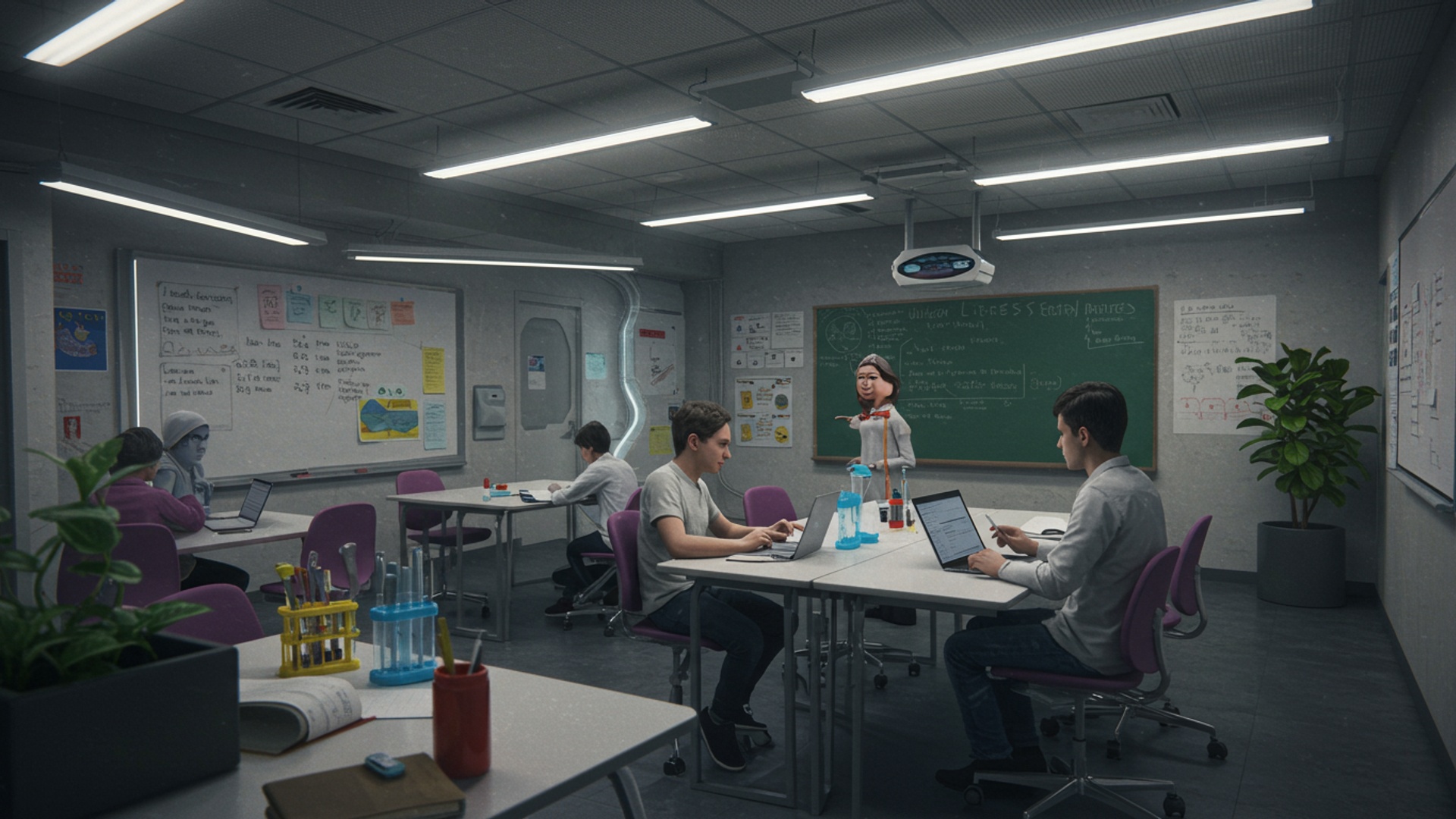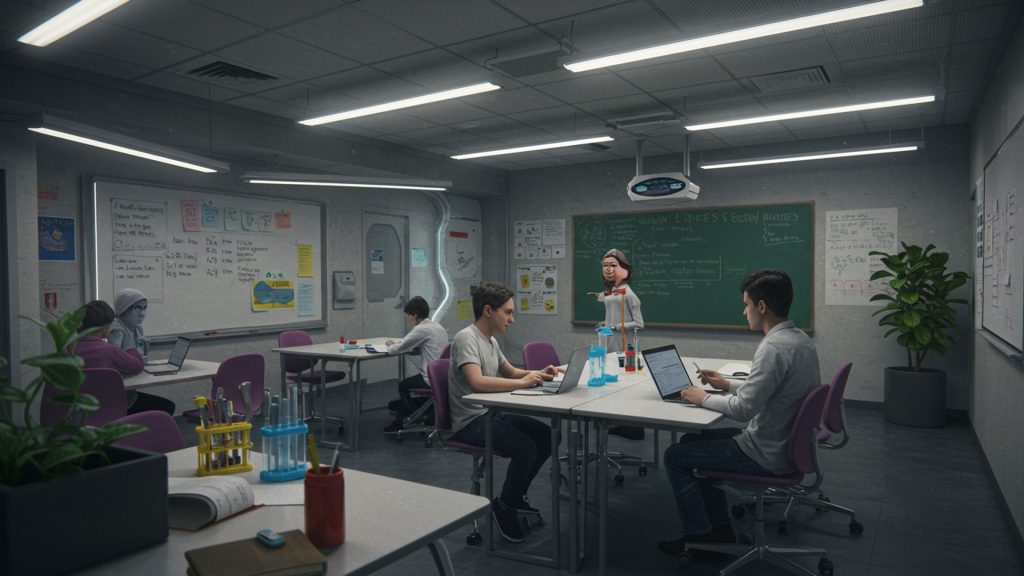Human ingenuity is actively redefining the very fabric of life, transforming biological systems into powerful tools. At its essence, what is biotechnology definition? It is the application of living organisms, cells, or their derivatives to develop technologies and products that solve problems and improve lives. This dynamic field is at the forefront of innovation, evident in recent breakthroughs like the rapid development of mRNA vaccines, the precision of CRISPR gene editing revolutionizing disease treatment. the sustainable production of cultivated meat. Biotechnology’s reach extends from enhancing agricultural yields and synthesizing novel therapeutics to pioneering environmental solutions, showcasing its profound impact across diverse sectors and promising a future shaped by biological innovation.

Understanding the Core: What is Biotechnology?
Imagine a world where medicine is tailored specifically for your body, where crops can grow in harsh conditions. where we can clean up pollution using microscopic helpers. This isn’t science fiction; it’s the incredible realm of biotechnology. At its heart, what is biotechnology definition? It’s essentially the application of biological processes, organisms, or systems to develop or make products for a specific purpose.
Think of it as humanity’s way of “programming” life itself. By understanding the intricate machinery of living things – from the smallest bacteria to the most complex human cells – we can harness their power to solve real-world problems. It’s about taking what nature has perfected over millennia and guiding it to serve our needs, whether that’s creating life-saving drugs or developing sustainable energy sources.
A Journey Through Time: From Ancient Brews to Gene Editing
Biotechnology isn’t a new concept born in a modern lab. In fact, humans have been practicing forms of it for thousands of years, long before the term even existed. Consider these historical examples:
- Ancient Fermentation: For millennia, civilizations have used microorganisms to make bread, cheese, beer. wine. These processes rely on yeast and bacteria to transform raw ingredients, a prime example of early biotechnology.
- Selective Breeding: Farmers have been selectively breeding plants and animals for desirable traits (e. g. , higher yield, disease resistance, better temperament) for over 10,000 years. This is a form of genetic manipulation, albeit a very slow and indirect one.
The true revolution, But, began in the 20th century with the discovery of DNA’s structure in 1953 by Watson and Crick, followed by advancements in molecular biology. This opened the door to understanding life at a fundamental level, paving the way for modern biotechnology tools like genetic engineering, which allow us to precisely modify organisms with unprecedented control.
The Building Blocks: Key Concepts and Technologies
To truly appreciate biotechnology, it helps to grasp some of its fundamental components and the cutting-edge technologies that drive it:
- DNA (Deoxyribonucleic Acid): This is the blueprint of life, a molecule that carries all the genetic instructions used in the growth, development, functioning. reproduction of all known living organisms. Biotechnology often involves manipulating this blueprint.
- Genes: Segments of DNA that contain the instructions for building specific proteins, which perform most of the work in cells and are required for the structure, function. regulation of the body’s tissues and organs.
- Cells: The basic structural, functional. biological units of all known organisms. Biotechnology frequently works at the cellular level, modifying cells to produce desired outcomes.
Now, let’s look at some key technologies:
- Genetic Engineering: This involves directly manipulating an organism’s genes. A prominent example is
CRISPR-Cas9, a revolutionary tool that allows scientists to precisely edit DNA sequences, much like a biological word processor. This opens possibilities for correcting genetic defects or introducing new traits.
- Fermentation: While ancient, modern fermentation uses carefully selected and engineered microorganisms to produce everything from biofuels to pharmaceuticals like insulin.
- Tissue Culture: Growing cells, tissues, or organs in an artificial environment outside the organism. This is crucial for developing vaccines, testing drugs. even growing meat in labs.
- Bioinformatics: The application of computational tools and statistics to interpret and interpret biological data, especially vast amounts of genetic data. It’s the data science of biology, essential for drug discovery and personalized medicine.
Where Does Biotechnology Live? Real-World Applications
Biotechnology’s impact is incredibly diverse, touching almost every aspect of our lives. Here’s a glimpse into its real-world applications:
Medicine and Healthcare: Revolutionizing Health
This is arguably where biotechnology has had its most profound impact. Think about the following:
- Drug Development: Biotechnology has given us life-saving medicines like human insulin (produced by bacteria), growth hormones. a wide array of antibodies used to treat autoimmune diseases and cancer.
- Vaccines: Many modern vaccines, including those for Hepatitis B and HPV, are produced using biotechnological methods, offering safer and more effective protection against diseases.
- Gene Therapy: This emerging field aims to treat diseases by correcting faulty genes. For example, some forms of blindness and severe combined immunodeficiency (SCID) are now being treated with gene therapy, offering hope where there was none.
- Diagnostics: Biotechnological tools enable rapid and accurate disease diagnosis, from PCR tests for infectious diseases (like COVID-19) to genetic tests that predict disease risk or guide personalized cancer treatments.
- Regenerative Medicine: Growing tissues and organs in the lab using stem cells holds immense promise for treating injuries and organ failure, reducing the need for donor organs.
Agriculture and Food: Feeding a Growing World
Biotechnology is vital for sustainable food production and improving nutrition:
- Genetically Modified Organisms (GMOs): Crops engineered for traits like pest resistance (e. g. , Bt corn), herbicide tolerance, or enhanced nutritional value (e. g. , Golden Rice, enriched with Vitamin A). While often debated, these crops have significantly reduced pesticide use and increased yields in many regions.
- Disease-Resistant Crops: Developing plants that can withstand devastating diseases, ensuring food security.
- Improved Livestock: Using biotechnology to enhance animal health, growth rates. disease resistance.
- Food Processing: Enzymes produced by biotechnology are used in making cheese, improving bread texture. clarifying fruit juices.
Industry and Environment: Sustainable Solutions
Beyond health and food, biotechnology offers solutions for industrial processes and environmental challenges:
- Biofuels: Producing renewable energy sources like ethanol from agricultural waste using engineered microorganisms, reducing reliance on fossil fuels.
- Bioremediation: Using bacteria and other microorganisms to clean up pollutants in soil and water, such as oil spills or toxic waste.
- Bioplastics: Developing biodegradable plastics from renewable biological resources, offering an alternative to traditional petroleum-based plastics.
- Enzyme Production: Industrial enzymes are used in detergents, textiles, paper manufacturing. many other processes, often making them more efficient and environmentally friendly.
Ethical Considerations and the Future of Biotech
As with any powerful technology, biotechnology comes with ethical considerations. Debates often revolve around:
- GMO Safety: Concerns about the long-term environmental and health impacts of genetically modified crops.
- Gene Editing in Humans: The ethical implications of altering the human germline (changes that can be passed to future generations) for therapeutic purposes or for “enhancement.”
- Data Privacy: With personalized medicine relying on genetic data, ensuring the privacy and security of this sensitive details is crucial.
Despite these debates, the future of biotechnology is incredibly promising. We are on the cusp of breakthroughs in areas like synthetic biology (designing new biological systems), advanced diagnostics that can detect diseases even before symptoms appear. therapies that could eradicate previously incurable conditions. As our understanding of life deepens, so too does our ability to harness its potential for the betterment of humanity and our planet.
Conclusion
Biotechnology, at its core, is simply the ingenious application of living organisms and biological systems to solve problems and create products, much like how a baker uses yeast to make bread. It’s not just about complex labs; it’s about understanding life’s building blocks to improve our world. Think of the swift development of mRNA vaccines during the recent pandemic, or the groundbreaking progress with CRISPR gene editing for conditions like sickle cell disease – these are tangible examples of biotech’s power in action, transforming healthcare and beyond. My personal tip is to remain an active observer: notice the advancements in personalized medicine, or how biotech is creating more sustainable agricultural practices. Don’t be afraid to delve deeper into topics that pique your interest, perhaps exploring how genetic engineering is addressing climate change. By staying curious and engaged, you contribute to a more informed public discourse, essential as biotechnology continues to reshape our future. Embrace this era of biological innovation; the potential to unlock new solutions for humanity and our planet is truly limitless.
More Articles
Genetic Engineering’s Green Promise: How It Benefits Our Environment
Understanding the Environmental Risks of Genetic Engineering: What to Know
Smart Strategies for Finding Promising Biotechnology Stocks to Invest In
Propelling Innovation: Discovering Germany’s Leading Engineering Universities for 2025
FAQs
So, what exactly is biotechnology, in simple terms?
At its core, biotechnology is about using living things – like tiny microbes, plants, or even parts of cells – to create useful products or solve problems. Think of it as biology meets technology, where we harness nature’s machinery to do cool stuff for us.
Does biotechnology only involve messing with genes, like in GMOs?
While genetic engineering is definitely a big part of it, biotechnology is much broader! It also includes things like using bacteria to clean up oil spills, fermenting yeast to make bread or beer, developing new medicines from natural sources, or even creating biodegradable plastics. It’s not just about changing DNA.
Where can I find examples of biotechnology in my everyday life?
You’d be surprised! It’s in the enzymes in your laundry detergent, the insulin for diabetics, the biofuels in some cars, the rapid diagnostic tests for illnesses. even the improved crops on farms. From healthcare to agriculture to environmental cleanup, it’s pretty much everywhere once you know what to look for.
Is biotechnology a really new science, or has it been around for a while?
Believe it or not, humans have been practicing forms of biotechnology for thousands of years, even without knowing the science behind it! Think about brewing beer, making cheese, or baking bread using yeast. The modern, more precise era of biotechnology, with DNA manipulation, really took off in the last few decades. the basic concept is ancient.
What are some of the biggest ways biotechnology helps us and the world?
It brings huge benefits! In medicine, it leads to new vaccines, therapies for diseases like cancer. more accurate diagnostics. In agriculture, it helps create hardier crops and more efficient food production. It also offers solutions for environmental issues, like cleaning pollution and developing sustainable energy sources. It’s all about improving life and solving complex challenges.
Are there any downsides or ethical worries we should consider with biotechnology?
That’s a very essential question. Like any powerful technology, biotechnology comes with ethical considerations. Discussions often revolve around the safety of genetically modified organisms, privacy concerns with genetic data. the moral implications of editing human genes. It’s crucial to have open conversations and regulations to ensure it’s used responsibly and for the good of all.
What kind of people work in biotechnology. what do they actually do?
It’s a super diverse field! You’ll find biologists, chemists, engineers, computer scientists, medical professionals. even ethicists. They might be researching new drugs, developing sustainable farming methods, creating diagnostic tools, working on environmental solutions, or ensuring the ethical use of the technology. If you’re curious about science and solving real-world problems, it’s a fascinating area to get into.



